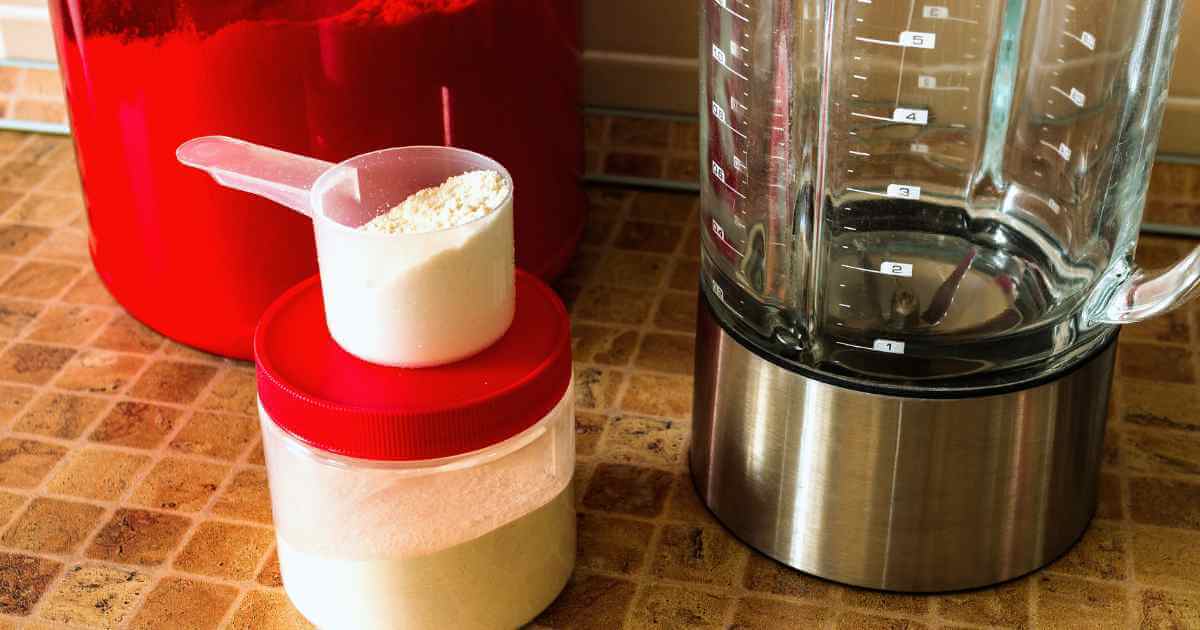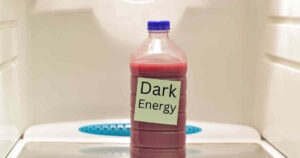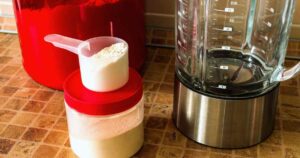Well, if you are a fitness enthusiast or regularly tender to the gym, then pre-workout supplements would have lasted in your memory. These products claim to help you achieve the next level of performance in terms of vigor, focus, and endurance during your training sessions. However, have you ever thought “Does pre-workout cause insulin spike?”
Thus, in this post, we will be discussing the science behind pre-workout supplements and their possible influence on insulin levels. Hence, without any further ado, let’s move into the topic.
Relationship Between Pre-Workout and Insulin Spikes
Does pre-workout cause insulin spikes? To know the answer to this question first, It is very important to understand the relationship between the pre-workout and insulin Spikes.
What is Insulin?
Insulin is a hormone produced by the endocrine system. It serves as a blood sugar regulator. Serving as a key player in the transport of glucose from the blood to cells to convert it to energy, it is a leading player. Insulin can also be a culprit of increased fat storage that can damage your fitness goals.
Ingredients in Pre-Workout Supplements that Cause Insulin Spikes
It is no secret that some ingredients in pre-workout supplements may cause insulin spikes.
Maltodextrin or Dextrose
Consider the case of maltodextrin or dextrose which are widely used as sources of quick energy during exercise. In this process, the carbohydrate is transformed into glucose which results in a quick rise in the blood sugar level causing the insulin to be released promptly.
Carbohydrates
The main ingredient in pre-workout supplements is carbohydrates, which are a fast-releasing energy source for the body. It is right that carbs are very contributing in terms of energy levels but if you consume more carbs, more sugar with be in the blood and insulin will be released.
Caffeine
Likewise, the pre-workout supplements often have caffeine, which is similarly a stimulant that many athletes use. Caffeine, as a stimulant in addition to a focusing magnifier, increases attention during the training.
However, Some studies suggest that high doses of caffeine may temporarily reduce insulin sensitivity but this effect is not consistently observed and it often depends on individual factors.
It is important to note that most people generally consider moderate caffeine intake safe, and if you have concerns about insulin resistance, it is advisable to consult with a healthcare professional for personalized advice.
Amino acids
Additionally, some pre-workout supplements contain amino acids such as arginine or citrulline. These amino acids are famous for enhancing muscle pump and blood flow. On the other hand, they can also lead to insulin release if the dosage is high.
Yet, the fact that not all pre-workout supplements will result in significant insulin spikes or a negative impact on your health and fitness objectives should also be acknowledged. The effect on individual physiology can be highly differentiated based on factors such as genetics, diet quality, exercise intensity, and duration.
Studies and Research
Studies and research are conducted to explore the association between pre-workout supplements and a high insulin surge. The studies are conducted, so that people learn what factors in pre-workout supplements affect insulin levels.
The Impact of High-Carb Pre-Workout Supplements
A study published in the Journal of the International Society of Sports Nutrition, which was concerned with the effect of pre-workout supplements containing high levels of carbohydrates like dextrose or maltodextrin on athletes’ performance during intense exercise, was explored. The scientists discovered that it caused insulin levels to rise during the exercise period. The insulin surge came from the muscle cells rapidly absorbing and using those carbs.
Caffeine before exercise
Another study published in Nutrients investigated caffeine’s effects on insulin sensitivity during exercise. This study recommended that caffeine before exercise could be a possible way to increase glucose uptake into muscles and then lower blood glucose levels and improve insulin sensitivity.
Effects of BCAAs
However, a research paper in Medicine & Science in Sports & Exercise that examined the effects of BCAAs on post-work exercise glucose metabolism was also performed. The data indicates that BCAA (Branched-Chain Amino Acids) supplementation as a factor is not associated with insulin sensitivity and glucose disposal rate.
Such studies provide useful data on how some ingredients found in pre-workout supplements may affect the levels of insulin. However, one must also understand that individual reactions may differ. Gene, nutrition, and general health can act as a mediator in how the individual’s body responds to these nutritional supplements.
To have a conclusive opinion on whether pre-workout causes an insulin spike for you, it is advisable to seek the services of a healthcare professional who can conduct an assessment of your unique circumstances and provide individualized advice depending on your fitness goals and your medical background.
Potential Risks and Side Effects
Insulin spikes generated via pre-workout supplementation can have either short-term or long-term effects and risks.
Dizziness and Weakness
In the short term, insulin spikes may result in an abrupt drop in blood sugar, which can cause symptoms like dizziness, weakness, and confusion. It can be really dangerous during exercise when you should keep your energy levels stable.
Type 2 Diabetes
Besides, the continuous release of superfluous insulin might be the factor that causes insulin resistance which is the condition when the cells of the body react inappropriately to the influence of the hormone. This is one of the factors that may bring about type 2 Diabetes as well as metabolic syndrome.
Weight gain
In addition, insulin surges that occur periodically may lead to weight gain or impede efforts of weight loss. Continued consumption of pre-workout supplements with high sugar content consistently elevates blood sugar levels, causing the body to store excess glucose as fat instead of utilizing it for energy.
Furthermore, it is worth pointing out that some pre-workout supplements include substances that have potential dangers and unwanted effects. For instance, the use of stimulants such as caffeine or synephrine may result in an elevated heart rate, jitteriness, anxiety, or sleeping disorder in people with sensitive systems.
Tips for Managing Insulin Levels When Taking pre-workout
In regards to your insulin management while using pre-workout supplements, here are a few approaches you may consider.
Choose the right pre-workout
Generally, you should choose the pre-workout supplement with a low sugar and carbohydrate content. Choose brands that prioritize amino acids, protein, and caffeine as their primary ingredients, while ranking sugar and artificial sweeteners lower.
Right Timing
Additionally, timing is key. Take your pre-workout supplement at least 30 minutes before exercising to allow sufficient time for digestion and absorption, avoiding a rapid increase in insulin levels.
Combine your pre-workout with a balanced diet
The other tip is to combine your pre-workout supplement with a balanced meal or snack which together contain proteins, healthy fats, and complex carbohydrates. This can help in slowing down the digestion pace and, consequently, will lead to prevention of the rapid blood sugar increases.
It also seems reasonable to include in addition to your routine other lifestyle factors that will help you with insulin level management. Daily physical activity, keeping a healthy body weight, having enough sleep, controlling stress, and a diet high in whole foods as well as low in processed ones will help to regulate insulin levels.
How to Choose a Pre-Workout Supplement with Minimal Risk of an Insulin Spike
Formulators do not design pre-workout supplements to induce insulin spikes, but these supplements may contain elements that act as promoters of insulin response in the body. To minimize this risk, here are some tips for choosing the right supplement: One of the best ways to avoid such danger is to observe the following when choosing the dietary supplement:
Read the labels
Make sure that the products you choose have only ingredients and nutritional information mentioned on their labels. Avoid high-sugar and artificial sweetener products because they can cause insulin spikes and may be too much for your body.
Opt for low glycemic options
Have a preference for supplements that have low GI. These products provide glucose to your blood gradually thus preventing the glucose from suddenly increasing the levels of insulin.
Pay attention to carbohydrates
Some pre-workout supplements load with carbs, potentially raising blood sugar levels and triggering insulin release. Select moderate carbohydrate products or products specially designed for low-carb diets with less carbohydrate content.
Focus on protein-based options
The body uses protein to help regulate blood sugar levels and prevent insulin spikes. Among the options that you have to take is the selection of pre-workout supplements whose main ingredient is protein.
Talk to a professional
In case you are hesitant about choosing the correct pre-workout supplement that would be beneficial for your health and specific issues, you should visit a healthcare professional or a nutritionist who can help you, taking into consideration your health issues and targets.
Alternatives to Pre-Workout Supplements
Here are some alternatives to pre-workout supplements if you have an insulin spike problem:
Natural Energy Boosters
If you have insulin spikes or you are concerned about their possible risk, you can choose from a variety of alternative options. Instead of using energy drinks as a pre-workout routine, you can also try to include some natural energy boosters that are good for you. For example, bananas, apples, and nuts are a great source of energy with gradual release of the energy hence preventing the abnormal spikes of insulin levels.
Balanced Meals
A balanced diet could be a possible strategy to consider before your workouts for instance. Consume complex carbohydrates, (lean) proteins, and healthy fats, they will keep your body energetic during the workout session.
Caffeine in Moderation
Even though pre-workout supplements frequently contain high doses of caffeine, which may promote insulin spikes in some individuals, choosing a moderate intake of coffee or tea can be a better alternative. These beverages contain small amounts of caffeine that can aid alertness and performance by regulating insulin release without causing big fluctuations.
Meal timing
The effectiveness of your meal timing in controlling your blood sugar levels during workouts is also worth considering. Try to eat at least one meal comprising carbohydrates and protein a few hours before exercising. This will help your body to have enough fuel while reducing the risk of the insulin level rising suddenly.
Final Words – does pre workout cause insulin spike?
The link between pre-workout supplements and insulin spikes is still a topic of debate and further research is needed to fully understand the effects. Certain pre-workout supplements may potentially increase insulin levels, but it’s important to note that individual responses may vary.
If you are concerned about insulin spikes or if you have specific health conditions such as diabetes or insulin resistance, it is advisable to consult with a healthcare professional before starting any new dietary supplement regimen.
Always prioritize maintaining overall health over achieving short-term performance gains. If you have concerns about how pre-workout supplements may affect your blood sugar levels or overall well-being, consult with a healthcare professional who can provide personalized guidance tailored specifically to your needs.









